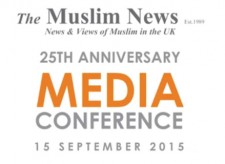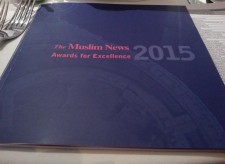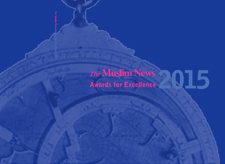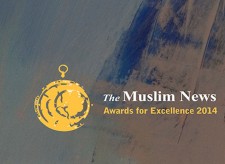Ahmed Rajab
French President Emmanuel Macron startled his hosts in Nigeria during his recent sojourn in the country by insisting on visiting the iconic New Afrika Shrine in Lagos, after his initial talks with President Muhammadu Buhari. At the Shrine he let his hair down and partied to the mesmerising sounds of Afrobeat music.
Taking off his jacket and tie, he then announced a ‘Season of African Culture’ that will bring the works of African artists to France in 2020.
The Shrine which is dedicated to the legendary Fela Kuti, the King of Afrobeat, is an old haunt of Macron when he lived in Lagos for six months as a 23-year-old intern at the French Embassy. He delighted others when a video clip of a seemingly streetwise Macron speaking in flawless Nigerian pidgin English went viral on social media (“My name na Emmanuel Macron. Na me be di President of France and I dey kampe for Lagos today.”)
All those events were part of a skilfully packaged PR exercise aimed at portraying the youthful French President as being in tune with the aspirations of young Africans who are intent on bettering their lives.
Macron gave a similar impression during an interactive meeting with over 2,000 young entrepreneurs from across Africa who were brought together by the Tony Elumelu Foundation (TEF). Set up in 2015 by Nigerian billionaire Tony Elumelu, TEF runs an entrepreneurship programme which is said to be the largest philanthropic initiative devoted to entrepreneurs. Macron engaged the participants on various issues, including politics, immigration, entrepreneurship, globalisation and the Africa Continental Free Trade Area.
The patronising tone of his pep talk with the youth famously telling them to “just move on” and put colonialism behind them exposed his ignorance about the debilitating effect of the colonial system on Africa. It had unfortunate echoes of former US President, Barack Obama, and his Secretary of State, Hillary Clinton, who both, while visiting Africa at different times, flippantly dismissed colonialism as a mitigating factor for Africa’s underdevelopment.
His talk also betrayed the real intent of his engagement with Africa. Last year on a visit to Burkina Faso, Macron told students at the University of Ouagadougou that, “France no longer has an Africa policy.” It was a statement that was in sharp contrast to the remark by one of his predecessors, Jacques Chirac, that, “Without Africa, France will slide down into the rank of a third [world] power.” And yet Macron insisted that he wanted Africa to be “a priority of French economic diplomacy”.
Macron’s big problem with Africa appeared to be demography. He was alarmist about the numbers of Africans desperately trying to gate-crash France as well as those remaining in Africa, citing “women with seven or eight children” as being one of the “civilizational problems” afflicting Africa. His proposed solution was two-pronged: to stop African migration to France, and the rest of Europe, and to curb birth rates in Africa. Perplexed that countries such as Senegal, Côte d’Ivoire, Ghana and Nigeria are the main source of “illegals” crossing the Sahara to the shores of Libya in their bid to cross the Mediterranean to Europe, he urged young Africans to embrace what he called “Africapitalism”.
What is evident is that in the face of its diminishing economic influence in Africa, France under Macron has decided to change gear and to use its soft power – culture and economic capacity – to continue to have a stranglehold on Africa’s natural resources, particularly in the French-speaking countries.
Although Africa still remains a significant export market for French goods and attracts a lot of French investments, the Franco-African economic links have been weakening in recent years. At the end of the last century, for example, Africa accounted for less than 5 per cent of France’s foreign trade. By contrast in 1988-89 alone France depended for 80 per cent of its energy from Africa, including 100 per cent uranium imports (key to a mainly nuclear-powered France) from Gabon and Niger. In addition, 70 per cent of the French oil company Elf-Aquitaine’s worldwide extractions were from African deposits.
It is interesting that Chirac chose Nigeria to make his pronouncements about France’s new relationship with Africa. Historically, France and Nigeria have not been the best of friends.
The French have always opposed Nigeria’s leadership rôle in the West Africa region, which comprises five Anglophone and eight Francophone countries. All countries bordering Nigeria are French-speaking.
In fact, what is seen as the Anglophone-Francophone divide is more of anti-Nigeria hysterics rather than an anti-Anglophone resentment? The animosity against Nigeria, the regional hegemon, is expressed mostly by Senegal and Côte d’Ivoire (Ivory Coast), two of the three middle powers, the other one being Ghana, an Anglophone. The rest are smaller states.
Boko Haram will continue to harass Nigeria and France will impress on it to fight it singlehandedly. But therein lies a dilemma for Nigeria. Paying more attention to the terrorist group and being too preoccupied with troubling domestic issues have weakened Nigeria’s leadership rôle in the region. The country had a much higher regional profile under the presidencies of Generals Ibrahim Babangida and Sani Abacha through its participation in regional initiatives such as Ecomog than now.
At best it would appear that Macron lacks a new vision of Franco-African relations as he would like people to believe. Despite his clichéd sound bites about a “new narrative” in the Franco-Africa relations, it seems unlikely that there will be a fundamental shift in that relationship. France would not want to lose control of what it considers its territories; particularly, those in the Sahel with high deposits of uranium. France will continue to dominate the Francophone countries, treating them as protected markets, and will also attempt to encroach on those on the Anglophone side of the African fence.
For geopolitical reasons, France will also continue to have a military presence in Mali. At present, the French are the only outside power with troops in the Sahel. The US, whose rôle in the Sahel has a link with the global war on terror, support the French with equipment. They feel that the Sahel is a breeding ground for militants. It is likely that France under Macron will intervene militarily in the Sahel as François Hollande did with Operation Serval and Operation Barkhane in Mali.
Macron, though, appears to tune his policies to resonate with the soft power of culture and the promotion of what he calls “Africapitalism”. This “Africapitalism” has always been there but was not allowed to thrive by metropolitan capitalists. In fact, capitalism of both hues did not do much good to the majority of Africans.
Ahmed Rajab is an international journalist and political analyst who is associated with the Kaduna-based Gusau Institute.
[Africa Sahel region Map by Peter Fitzgerald, amendments by LtPowers/Creative Commons]

















